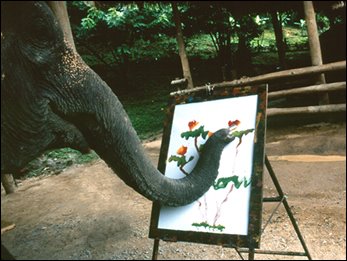How much filtration does waste water go through at key treatment plants before it is returned to the ocean?I feel that I can address this with a nice mixture of qualitative and quantitative data that will provide the average reader with some shocking statistics and provoke reasonably deep ethical ruminations. The second question is:
How does our own pollution affect us?Obviously, this is an extremely open-ended question, but I would attempt to localize it somewhat by focusing on California's proximity and relationship to/with the pacific. I actually plan to integrate the two questions regardless of which one I end up writing about, because they compliment each other very well.
I came up with the first prompt both because of interest and a field trip the class took last year to a water treatment plant for an entirely unrelated project. I plan to apply some of the knowledge gleaned from that trip, and visit that same plant and others to interview them on their work and provide excellent primary sources for my article. I am leaning heavily towards the first question, mainly because the second is so indefinite, but also because I believe the second would be more effective if integrated with the first than on its own. I have not yet given any serious thought to the structure of the article, but for the first question I hope to include information on water treatment standards, the amount of sewage dumped in the ocean (along with percentages; how much of it was treated and to what extent), bacteria content during various stages of treatment, the treatment process itself, the effect on nearby wildlife, and some information on currents and how the sewage travels (treated and untreated). I would also like to cover the following concepts in article #1, though they are more related to question #2: in relation to how the sewage effects wildlife, address how we rely on said wildlife (be it fish, plankton, crabs, lobster, or any other marine creature), touch briefly on natural water treatment processes and how sewage affects them in a wider context, and how our own pollution eventually cycles back to affect us and what it can do when it does. As stated above, I think the best resource would be the treatment plants themselves, but there are undoubtedly certain books that offer a wealth of information on the subject, and a brief, very unspecific google search provided these sources: a diagram and the workings of a treatment machine, some info on currents, sewage's effects on wildlife in the antarctic, and general information on sewage.
For the second article, I would need to narrow my focus tremendously, because I know from experience that if I have such a general topic, I could write on for pages and pages but never actually address the question. A few areas that I think would be good to cover in answering this question are: the way water cycles through the environment naturally (e.g. rain, rivers, and mountains) and how sewage is cycled with it, how we and all other life rely on this cycle, how this cycle affects the environment when it is polluted (such as acid rain), and perhaps spend some time hypothesizing on the conundrum of a growing population along with how this might affect the delicate balance that is nature, a balance that has already been so manipulated. I could certainly draw some evidence from the ecology of China, but the article would be primarily focused on America. I could also touch on the affects of global warming, greenhouse gasses, and garbage sequestration, especially plastic, along with providing some coverage of the "north pacific gyre".
In the end, I would touch on both questions to varying degrees in whichever topic I choose, (or am assigned, I am not sure if I will have the liberty of designating the article myself) because of their close relationship with one another. In hindsight, and after giving thought to addressing the second question, I feel that I could write a fairly good article about either of them. The first would require a vast amount of reading and resource-management, while the second would call for some extremely competent tie-ins between all of the disparate concepts I would be covering. Both have advantages and disadvantages, and at this point I have no idea which to choose.

No comments:
Post a Comment